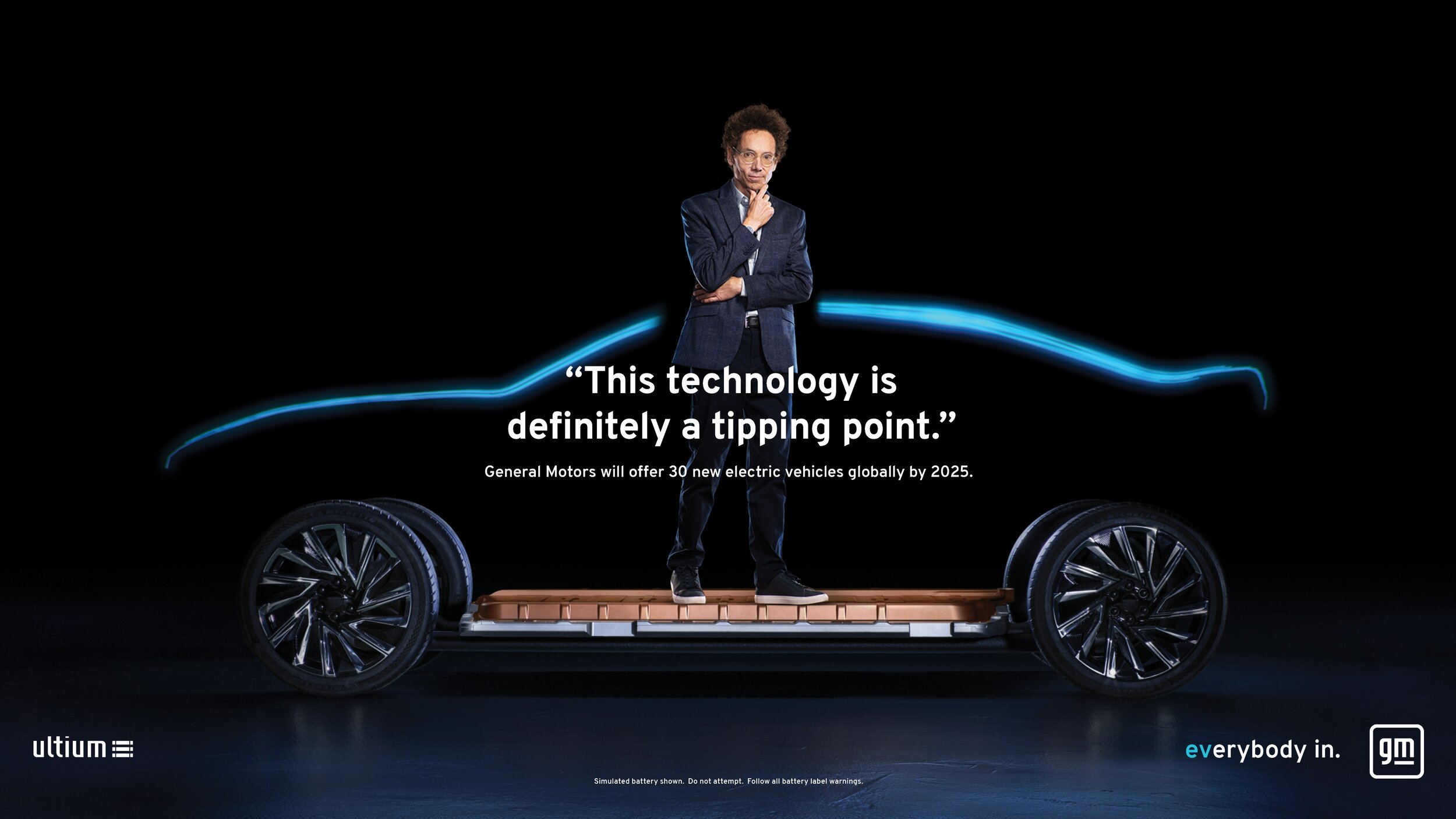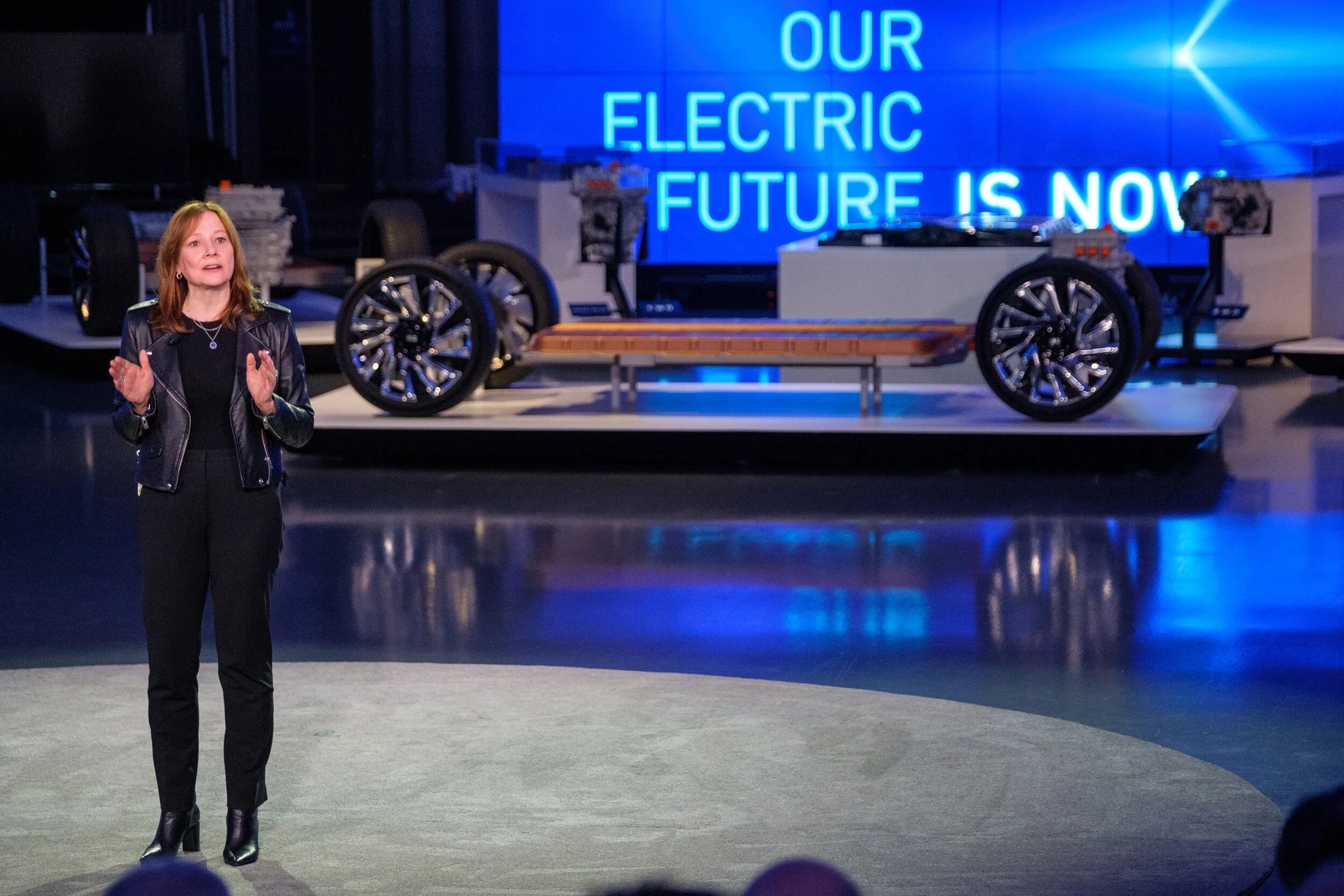GM Makes Biggest Change to Logo in History – Symbolism or Substance?
By Edward A. Sanchez – Jan. 8, 2021
On Jan. 8, 2021, General Motors unveiled its new corporate logo. Gone is the formal stern, dark blue all-caps “GM” that has been the official corporate logo for decades. That itself was an evolution of the logo that had “Mark of Excellence” as a subscript. The only thing possibly more partisan in America than politics is automotive brand loyalty, and “Mark of Excellence” is a subjective claim, as there are likely as many different opinions on how “excellent” or not GM products have been historically or are today. But I digress. Back to the news of the day.
The new logo is brighter and shaded blue, with a friendlier-looking lower-case “g” with only the “m” underlined. GM says this is only the fifth change in the corporate logo in the company’s 113-year history, and the most significant since 1964. To further emphasize the company’s new progressive credentials and future focus, they’ve tapped tech pop culture figure Malcolm Gladwell from Tipping Point fame as its new spokesperson. A somewhat cringey promotional image for the logo change has the pull-quote “This technology is definitely a tipping point” superimposed on top of Gladwell standing in front of a silhouette of the company’s Ultium EV platform. In the corner of the image is GM’s (or is it “gm” now?) new ostensible slogan, “everybody in” (note the friendly lower-case) with “ev” highlighted in the new high-tech light blue.
GM’s new EV ad campaign involves Malcolm Gladwell and a catchy play on Tipping Point.
I am not a branding expert and have only limited experience in marketing. I certainly don’t begrudge GM making the change, or publicizing it. Yet, there’s a fine line between promotion and “trying too hard,” and this is right on the edge in my eyes. I’m sure GM, like most of the rest of the automotive industry, is green (no pun intended) with envy with Tesla’s market valuation, and the company’s black-hole-like gravitational effect on the media’s and public’s attention, despite zero traditional advertising, and an infamously indifferent attitude toward media relations.
Again, I don’t want to begrudge GM its reimaging initiative. But at the end of the day, what matters is product delivery. Other than the Bolt EV, the company only has two other imminent EV entries into the market that I’m aware of in the next 12-18 months – the crossover-ish Bolt EUV and the forthcoming GMC Hummer EV. The Cadillac Lyriq is further out, as are the other variants of the Ultium platform. In a few years, GM may have dozens of full EVs in showrooms and on the road. I wish the company well, and hope it does become a major player in the EV space, as frankly Tesla can’t do it on its own. Even with all four of its global factories (two of which are still under construction) going at full-bore, its hypothetical output is around 2 million units a year. GM produced just under 8 million units in 2019.
It will take GM, Ford, Toyota, Stellantis, and others to go “all-in” on EVs for it to be a legitimate revolution. Although it’s clear trends, regulations, public sentiment, etc., are quietly and incrementally aligning behind the scenes to make EVs the predominant future technology, the industry is arguably further ahead on this than the general public’s acceptance and enthusiasm for EVs, at least in terms of sales and purchase intent. At the end of the day, it comes down to sales, and aside from GM’s China-only low-speed Wuling urban runabout, Tesla is still the clear current winner.
(Images courtesy GM)
Follow us on Google News and like us on Facebook








